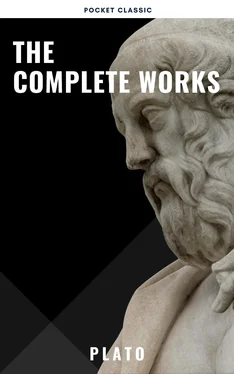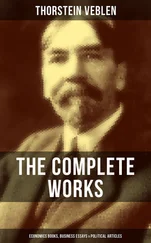‘This is all that we have to say to our families: and to the state we would say—Take care of our parents and of our sons: let her worthily cherish the old age of our parents, and bring up our sons in the right way. But we know that she will of her own accord take care of them, and does not need any exhortation of ours.’
This, O ye children and parents of the dead, is the message which they bid us deliver to you, and which I do deliver with the utmost seriousness. And in their name I beseech you, the children, to imitate your fathers, and you, parents, to be of good cheer about yourselves; for we will nourish your age, and take care of you both publicly and privately in any place in which one of us may meet one of you who are the parents of the dead. And the care of you which the city shows, you know yourselves; for she has made provision by law concerning the parents and children of those who die in war; the highest authority is specially entrusted with the duty of watching over them above all other citizens, and they will see that your fathers and mothers have no wrong done to them. The city herself shares in the education of the children, desiring as far as it is possible that their orphanhood may not be felt by them; while they are children she is a parent to them, and when they have arrived at man’s estate she sends them to their several duties, in full armour clad; and bringing freshly to their minds the ways of their fathers, she places in their hands the instruments of their fathers’ virtues; for the sake of the omen, she would have them from the first begin to rule over their own houses arrayed in the strength and arms of their fathers. And as for the dead, she never ceases honouring them, celebrating in common for all rites which become the property of each; and in addition to this, holding gymnastic and equestrian contests, and musical festivals of every sort. She is to the dead in the place of a son and heir, and to their sons in the place of a father, and to their parents and elder kindred in the place of a guardian—ever and always caring for them. Considering this, you ought to bear your calamity the more gently; for thus you will be most endeared to the dead and to the living, and your sorrows will heal and be healed. And now do you and all, having lamented the dead in common according to the law, go your ways.
You have heard, Menexenus, the oration of Aspasia the Milesian.
MENEXENUS: Truly, Socrates, I marvel that Aspasia, who is only a woman, should be able to compose such a speech; she must be a rare one.
SOCRATES: Well, if you are incredulous, you may come with me and hear her.
MENEXENUS: I have often met Aspasia, Socrates, and know what she is like.
SOCRATES: Well, and do you not admire her, and are you not grateful for her speech?
MENEXENUS: Yes, Socrates, I am very grateful to her or to him who told you, and still more to you who have told me.
SOCRATES: Very good. But you must take care not to tell of me, and then at some future time I will repeat to you many other excellent political speeches of hers.
MENEXENUS: Fear not, only let me hear them, and I will keep the secret.
SOCRATES: Then I will keep my promise.
PERSONS OF THE DIALOGUE:Socrates, Ion.
SOCRATES: Welcome, Ion. Are you from your native city of Ephesus?
ION: No, Socrates; but from Epidaurus, where I attended the festival of Asclepius.
SOCRATES: And do the Epidaurians have contests of rhapsodes at the festival?
ION: O yes; and of all sorts of musical performers.
SOCRATES: And were you one of the competitors—and did you succeed?
ION: I obtained the first prize of all, Socrates.
SOCRATES: Well done; and I hope that you will do the same for us at the Panathenaea.
ION: And I will, please heaven.
SOCRATES: I often envy the profession of a rhapsode, Ion; for you have always to wear fine clothes, and to look as beautiful as you can is a part of your art. Then, again, you are obliged to be continually in the company of many good poets; and especially of Homer, who is the best and most divine of them; and to understand him, and not merely learn his words by rote, is a thing greatly to be envied. And no man can be a rhapsode who does not understand the meaning of the poet. For the rhapsode ought to interpret the mind of the poet to his hearers, but how can he interpret him well unless he knows what he means? All this is greatly to be envied.
ION: Very true, Socrates; interpretation has certainly been the most laborious part of my art; and I believe myself able to speak about Homer better than any man; and that neither Metrodorus of Lampsacus, nor Stesimbrotus of Thasos, nor Glaucon, nor any one else who ever was, had as good ideas about Homer as I have, or as many.
SOCRATES: I am glad to hear you say so, Ion; I see that you will not refuse to acquaint me with them.
ION: Certainly, Socrates; and you really ought to hear how exquisitely I render Homer. I think that the Homeridae should give me a golden crown.
SOCRATES: I shall take an opportunity of hearing your embellishments of him at some other time. But just now I should like to ask you a question: Does your art extend to Hesiod and Archilochus, or to Homer only?
ION: To Homer only; he is in himself quite enough.
SOCRATES: Are there any things about which Homer and Hesiod agree?
ION: Yes; in my opinion there are a good many.
SOCRATES: And can you interpret better what Homer says, or what Hesiod says, about these matters in which they agree?
ION: I can interpret them equally well, Socrates, where they agree.
SOCRATES: But what about matters in which they do not agree?—for example, about divination, of which both Homer and Hesiod have something to say,—
ION: Very true:
SOCRATES: Would you or a good prophet be a better interpreter of what these two poets say about divination, not only when they agree, but when they disagree?
ION: A prophet.
SOCRATES: And if you were a prophet, would you not be able to interpret them when they disagree as well as when they agree?
ION: Clearly.
SOCRATES: But how did you come to have this skill about Homer only, and not about Hesiod or the other poets? Does not Homer speak of the same themes which all other poets handle? Is not war his great argument? and does he not speak of human society and of intercourse of men, good and bad, skilled and unskilled, and of the gods conversing with one another and with mankind, and about what happens in heaven and in the world below, and the generations of gods and heroes? Are not these the themes of which Homer sings?
ION: Very true, Socrates.
SOCRATES: And do not the other poets sing of the same?
ION: Yes, Socrates; but not in the same way as Homer.
SOCRATES: What, in a worse way?
ION: Yes, in a far worse.
SOCRATES: And Homer in a better way?
ION: He is incomparably better.
SOCRATES: And yet surely, my dear friend Ion, in a discussion about arithmetic, where many people are speaking, and one speaks better than the rest, there is somebody who can judge which of them is the good speaker?
ION: Yes.
SOCRATES: And he who judges of the good will be the same as he who judges of the bad speakers?
ION: The same.
SOCRATES: And he will be the arithmetician?
ION: Yes.
SOCRATES: Well, and in discussions about the wholesomeness of food, when many persons are speaking, and one speaks better than the rest, will he who recognizes the better speaker be a different person from him who recognizes the worse, or the same?
ION: Clearly the same.
SOCRATES: And who is he, and what is his name?
ION: The physician.
SOCRATES: And speaking generally, in all discussions in which the subject is the same and many men are speaking, will not he who knows the good know the bad speaker also? For if he does not know the bad, neither will he know the good when the same topic is being discussed.
Читать дальше












